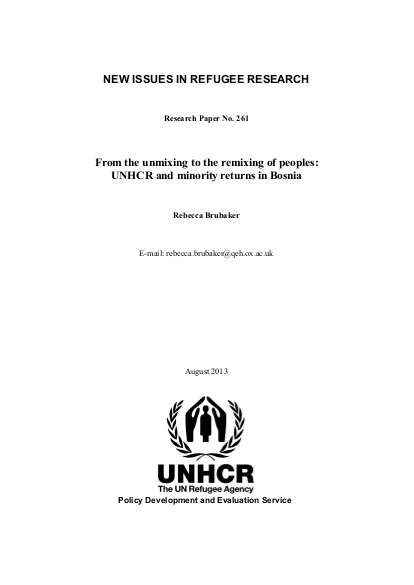
Of the three durable solutions to displacement – resettlement, local integration and return – the return of refugees has been the subject of the greatest amount of scholarly focus in the past two decades. One specific sub-category of return, however, merits more analysis. “Minority returns”, or the return of individuals following ethnic conflict to regions controlled by another ethnic group, is a very distinct category of return. This category raises unique practical and ethical questions and thus warrants separate analysis. A policy of promoting minority returns captures the tension between three contradictory elements in UNHCR‘s work, namely: (a) the tension between its responsibility to protect and responsibility to ensure durable solutions; (b) the trade-off between “bringing safety to people” and “bringing people to safety;” and (c) the challenge of balancing practical compromise with adhering to general normative frameworks. This paper3 will explore the following core questions: Is the return of displaced persons to their place of origin4 a realistic policy to prioritize following ethnically-based conflict? Even if the policy is not realistic, should UNHCR still support it on moral grounds? And what might have been the ethical impact of prioritizing alternative durable solutions in the Bosnian case?